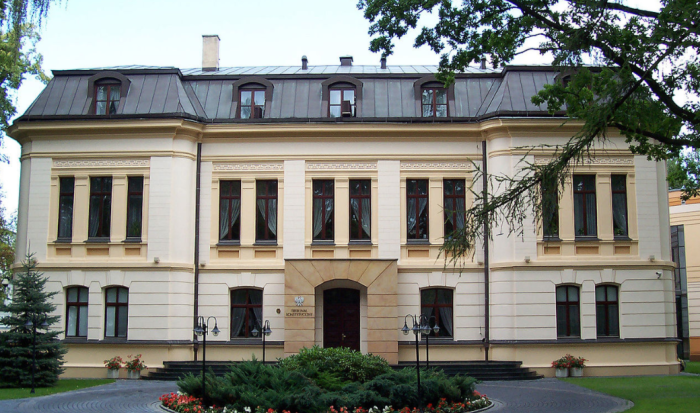Poland court rules abortion due to birth defects is unconstitutional

Pro-life groups are praising the Poland Constitutional Tribunal's Thursday decision against a law permitting abortions based on fetal defects, ruling that it violates the Polish Constitution. The decision has sparked outrage among some advocacy groups.
According to the American religious freedom legal organization Alliance Defending Freedom, the Constitutional Tribunal declared that “the unborn child, a human being who is entitled to inherent and inalienable dignity, is a subject having the right to life, and the legal system must guarantee due protection for this central good.” The right to life is protected in Article 38 of the Polish Constitution.
Following the ruling, abortions will be permitted in Poland only in cases of rape or incest or if the mother’s health and/or life are at risk.
The Center for Reproductive Rights, Human Rights Watch and Amnesty International condemned the decision.
“Today’s judgement puts the health and lives of women in Poland at great risk and violates Poland’s obligations under international human rights treaties to refrain from retrogressive measures that roll-back women’s rights to reproductive health care,” said Leah Hoctor, regional director for Europe at the Center for Reproductive Rights.
“Poland must act now to bring its law into line with other EU member states and legalize abortion on a woman’s request or broad social grounds, and guarantee women’s full and effective access to care in situations where women’s physical or mental health is at risk."
Esther Major, senior research adviser at Amnesty International, argued that “legal prohibitions on abortion do not prevent abortion or reduce the rates of abortion; they serve only to damage women’s health by pushing abortions underground or forcing women to travel to foreign countries to access abortion care they need and to which they have a right.”
The Constitutional Tribunal’s decision was met with fierce backlash from pro-abortion activists in the eastern European country, who disrupted masses and held protests outside churches on Sunday.
The decision came on the same day that 32 countries, including the U.S. and Poland, signed the Geneva Consensus Declaration, declaring that “there is no international right to abortion.”
Archbishop Stanislaw Gadecki, president of the Polish bishops’ conference praised the ruling: “It was found that the concept of ‘life not worth living’ is in sharp contradiction to the principle of a democratic state ruled by law. The life of every human being from conception to natural death is of equal value to God and should be equally protected by the state.”
Lila Rose, founder and president of Live Action, expressed hope that the U.S. will “learn from Poland and take steps to ensure protection for all children, including those with disabilities or conceived in violence.”
Amazing news! Poland's top court rules to protect babies with congenital conditions from abortion.
— Lila Rose (@LilaGraceRose) October 23, 2020
May America learn from Poland and take steps to ensure protection for all children, including those with disabilities or conceived in violence. https://t.co/izIJPDaBbU
Several U.S. states, including Indiana, have enacted legislation banning abortions on the basis of genetic abnormalities, including Down syndrome. In most cases, the laws have been struck down by the American courts.
According to Angelus News, the Constitutional Tribunal’s ruling coincided with the feast day of St. John Paul II. Born as Karol Wojtyla in Poland, John Paul II served as pope of the Roman Catholic Church from 1978 until his death in 2005.
Unlike many European countries, where religious observance has seen a steep decline in recent years, Poland still has a very high rate of religiosity. A 2018 report from the Pew Research Center found that Poland was the eighth most religious country out of 34 European countries surveyed, with 40% of the population identifying as “highly religious.”
By contrast, only 12% of those living in neighboring Germany describe themselves as “highly religious” while just 8% of the population of nearby Denmark is “highly religious.” Poland ranks first in church attendance among the 34 European countries, with 61% of Poles saying that they attend religious services at least monthly.
Poland had the third highest share of residents who say they pray daily (27%) and the eleventh highest share of residents who say religion is very important in their lives (29%). Forty-five percent of the Polish population say that they believe in God with absolute certainty. Only in eight other European countries did a higher share of the population express the same level of confidence in the existence of God.





























